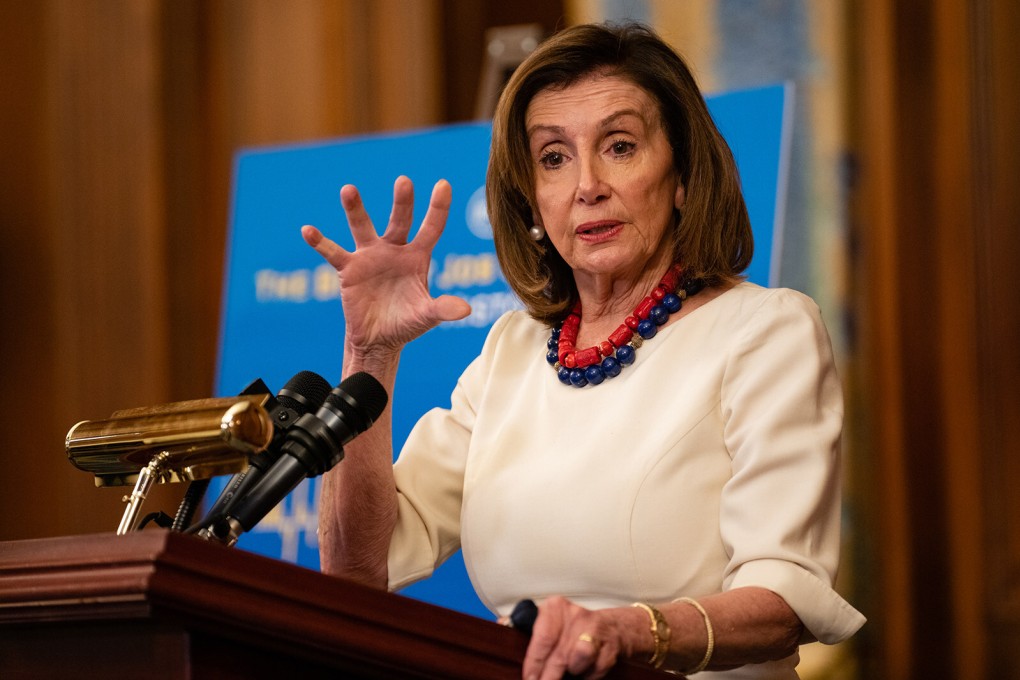US House Speaker advises athletes not to speak out at Olympics to avoid retaliation by Beijing
- ‘Do not risk incurring the anger of the Chinese government because they are ruthless,’ Nancy Pelosi says
- Call follows Chinese organising committee official’s warning that participants whose words violated Chinese laws would be subject to “certain punishments”

US House Speaker Nancy Pelosi has urged American athletes not to speak out on China’s human rights record while competing in the Beijing Winter Olympic and Paralympic Games, citing the risk of retaliation by the Chinese government.
“You are there to compete; do not risk incurring the anger of the Chinese government because they are ruthless,” Pelosi said on Thursday during a hearing of the Congressional-Executive Commission on China (CECC).
“I know there is a temptation on the part of some to speak out while they are there,” Pelosi continued. “I respect that. But I also worry about what the Chinese government might do to their reputations, to their families.”
Her remarks echoed advice rights advocates gave at a January event hosted by the US-based Human Rights Watch. But Thursday’s warning carried extra weight coming from Pelosi, the leader of the House of Representatives and one of Capitol Hill’s most prominent critics of Beijing.
Asked about Pelosi’s comments, a representative for the Chinese embassy in Washington called on US politicians to stop “attacking and smearing China” and “unethically taking the athletes hostage in the name of ‘free speech’”.
“China welcomes all athletes to the Beijing Winter Olympic Games, and will act as a good host country, which will ensure the personal safety and legitimate rights and interests of all athletes, and provide them with warm and thoughtful services,” the representative said.
Pelosi’s call followed a warning in January by a senior official in the Chinese organising committee that participants whose actions or words violated Olympic rules or Chinese laws or regulations would be subject to “certain punishments”.
